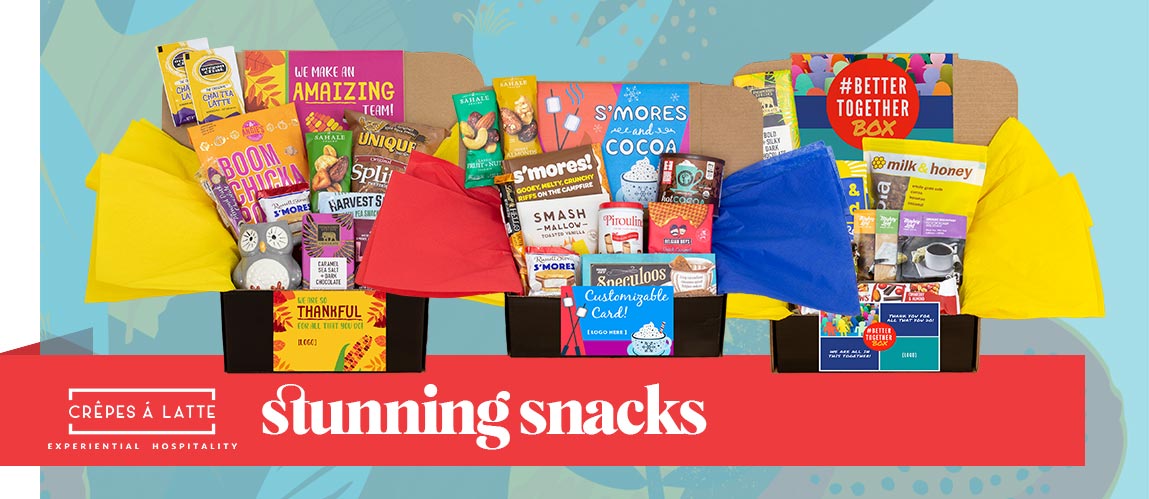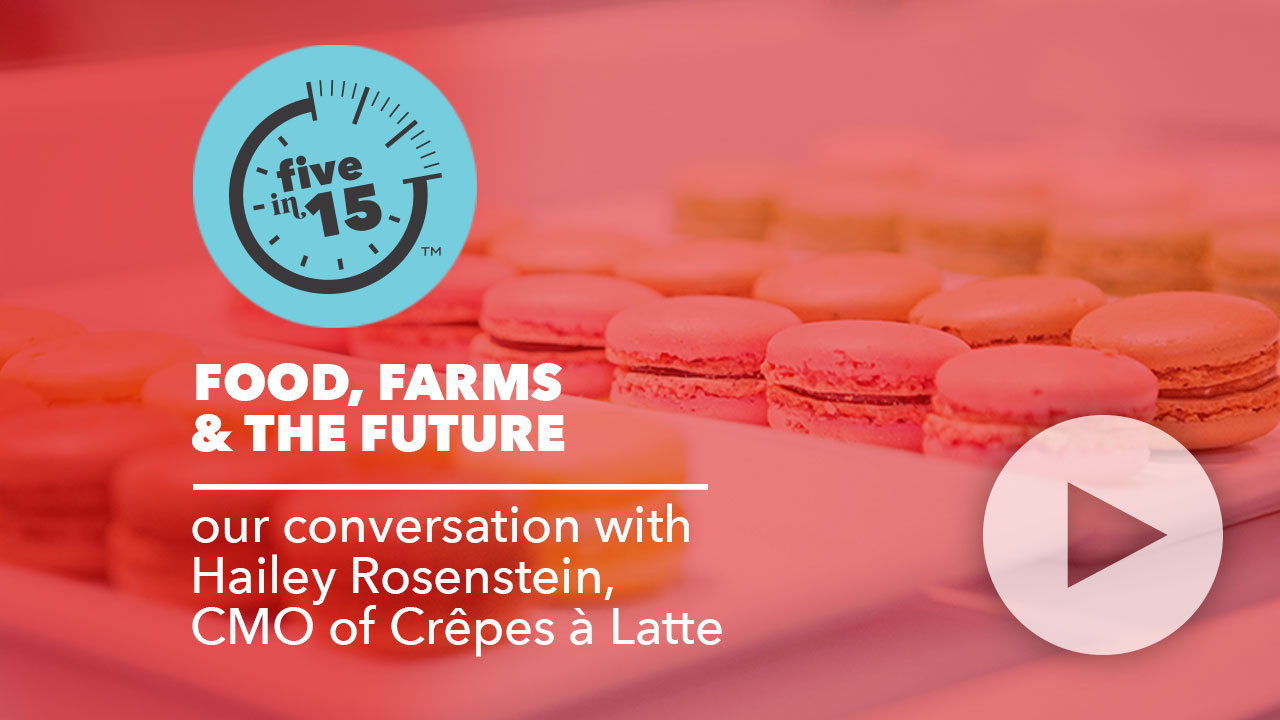Miss trade shows? What if your entire business model depended on them? Those are the headwinds that experiential food and beverage company, Crêpes à Latte, faced this past March.
Their business model centered on higher-end experiences (think cappuccinos and street tacos) at more than 200 trade shows and other events annually. That all changed this past spring when COVID-related event cancellations came fast and furious. In all, they had to account for the loss of more than 400 shifts of workers on trade show floors.
Anatomy of an all-caps pivot
Recently, as part of our Food, Farms & the Future webinar series, we had the opportunity to talk with Hailey Rosenstein, CMO of employee-owned Crêpes à Latte. What we learned in our short, 15-minute (and change) conversation was inspirational, eye-opening and valuable for anyone who’s facing the need to pivot quickly and decisively.
You’ll want to watch the interview to see for yourself what Hailey had to share, but the company basically changed its entire business model—at least for the immediate future—to an ecommerce platform offering hospitality boxes at BetterTogetherBoxes.net.
Five essential takeaways from our conversation
We learned a lot about pivoting during a pandemic in our few short minutes together. Here are five key takeaways:
- Turn a “What Now” Into a “What If”: Rosenstein found herself with food industry connections, marketing expertise and an experienced staff—but almost no revenue. This caused her and her team to identify the essence of what they were really offering at tradeshows, which was a welcome food break, a memorable message and smile-inducing thank you. Next, they had to figure out how to replicate that essence in the absence of live events. The result: high-impact boxes with a food focus sent directly to key contacts or customers.

- A Successful “What If” Can Be Sustainable Post-Pandemic: As Rosenstein and team started to see their Better Together Boxes gain traction by bringing in revenue from larger clients, she immediately realized the potential for a post-pandemic brand. Hard as it is for any of us to believe on most days, this crisis will not last forever. Like Crêpes à Latte, if you find something that works now, consider ways to make it last over the long haul.
- Rethink Strict (and Traditional) Job Descriptions: Even if you don’t go as far as Crêpes à Latte did by giving everyone the same job title, it might make sense to let everyone on your team know that “we’re all in this together.” For Crêpes à Latte, being an employee-owned ESOP became a powerful ally and the team rallied to do whatever was necessary to save jobs.
- There Will Never Be a Substitute for Live Events: While tradeshows probably won’t return until Q2 of next year at the earliest, Hailey Rosenstein stressed that there’s nothing like the face-to-face interactions that occur at live events—and they will return. Meanwhile, Rosenstein is focusing on job protection—and the potential to build another division of the company.
- Always Maintain a Culture of Positivity: Everything we project is contagious, according to Rosenstein. Keeping things intentionally positive can go a long way to sustaining an organization through difficult times. Like many entrepreneurs, she found herself and others working almost constantly to radically shift the business.
You won’t want to miss this webinar about one company’s dynamic, dramatic, this-changes-everything pivot—and be sure to sign up using the form below if you’d like to receive similar content or be considered as a featured guest in a future Food, Farms & the Future conversation.
C.O.nxt Insight.
Our team of subject matter experts focuses on food and agriculture—farm field to processing to entrée on a plate. We can help you build a new brand, protect an old one or target customers to foster sales. Let’s talk when the time is right to handle your next strategic marketing and communications challenge: Marcy Tessmann, marcy@co-nxt.com.
SHARE THIS STORY
What Would You Solve in 30 Days?
Every brand faces moments when clarity, momentum, or alignment are lacking. Sometimes it’s a new product that needs a smart go-to-market plan. Other times, it’s a shift in the business that calls for a tighter

